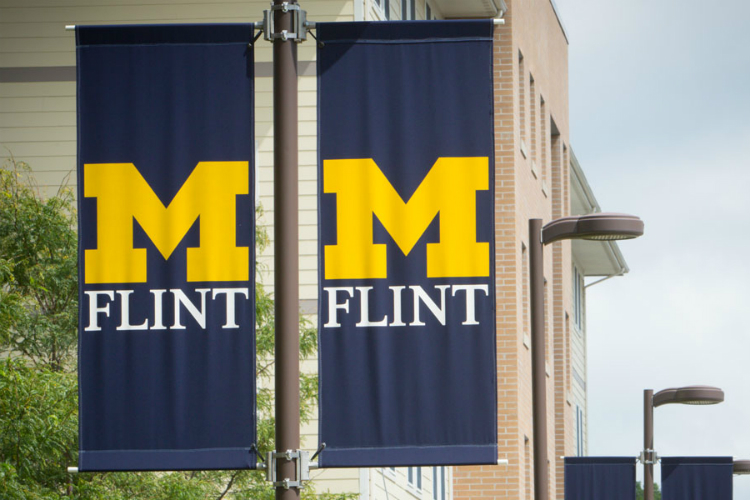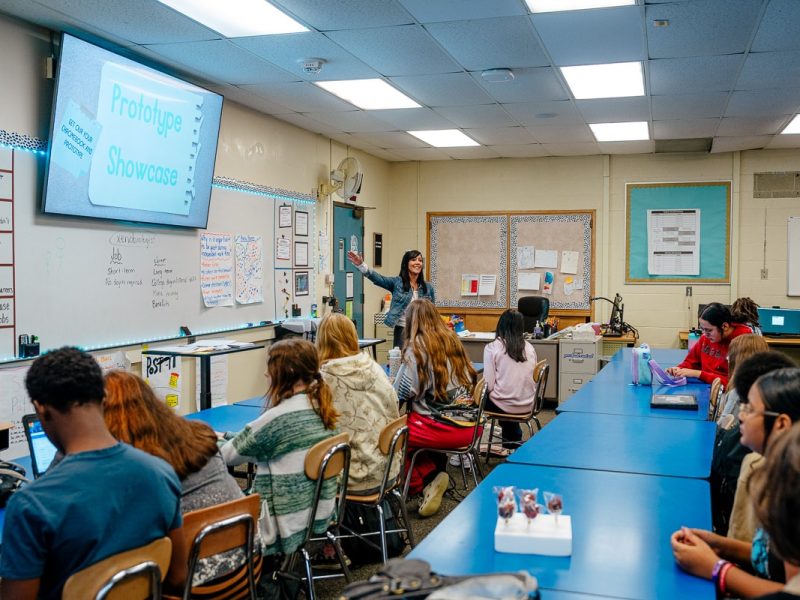UM-Flint receives federal grant to boost economic development
A $300,000 grant from the U.S. Economic Development Administration will help the University of Michigan-Flint support Genesee County institutions in response to the COVID-19 pandemic.

FLINT, Michigan — The University of Michigan-Flint was the only institution in the state of Michigan to receive a U.S. Economic Development Administration (EDA) grant to support regional economic development strategies in response to the COVID-19 pandemic.
The $300,000 EDA CARES Act Recovery Assistance grant will help the university’s EDA University Cityer for Community & Economic Development, housed in the Office of Research and Economic Development, provide Genesee County businesses, nonprofits, municipalities, nonprofits, and educational institutions with resources and support economic development.
“We have found that many local leaders are overwhelmed as they navigate the evolving new
normal of COVID-19,” said David Merot, who directs the UM-Flint EDA University Center
for Community and Economic Development, in a news release. “That’s where this grant will allow our team of experts to expand services and support to our partners across the spectrum of industry, education, government, and nonprofits. Our work is already underway.”
Those initiatives include:
-
Implementing community workforce development programs in cyber security to specifically address issues stemming from and related to the COVID-19 pandemic.
-
Create a suite of online content in the form of technical assistance training and webinars that will help business owners and entrepreneurs mitigate the economic implications of the coronavirus pandemic.
-
The GIS Center team will work alongside campus and community partners to address economic and social impacts resulting from COVID-19, such as market retail analysis and spatial analysis based on the prevalence of COVID-19 cases in the region, unemployment rates, retail sales, loan distribution information, and other socioeconomic variables allowing for comparisons from before and after the pandemic. The resulting studies will provide a repository of information for small businesses, entrepreneurs, and communities in the region to analyze how the economic landscape has changed over time and will assist them in adapting to the new climate.
-
The GIS Center will also help to support municipal and education leaders with their data requests, including mapping broadband access, opportunity zones, and demographic trends.
-
Developing a product commercialization pipeline by collaborating with a network of subject matter experts and business owners to develop webinars on pandemic-related issues, such as best practices and safety protocols, pivoting to e-commerce or the production of other products/services, supply chain disruptions, international trade implications, etc. This includes holding competitions to develop more effective Personal Protective Equipment (PPE).
-
Create a business climate survey measuring economic and social impacts related to the coronavirus pandemic. The survey results will help inform policy makers, economic development professionals, and community leaders about business needs going forward.






